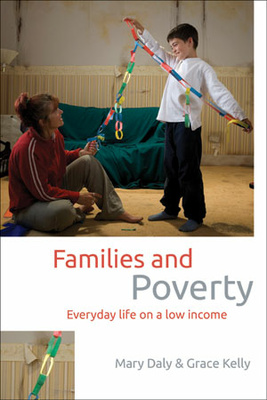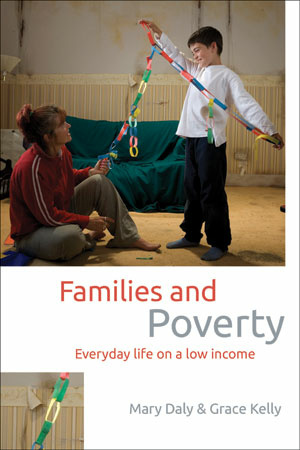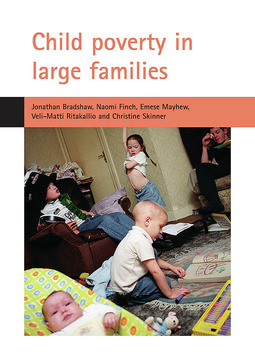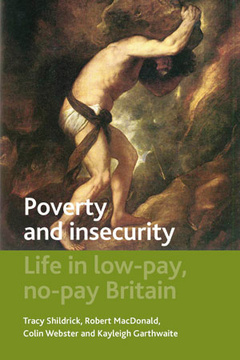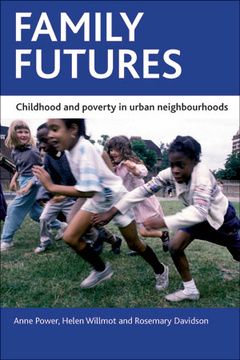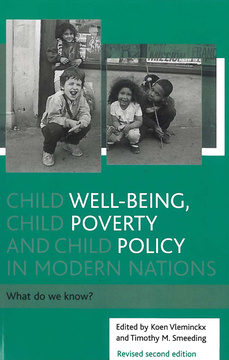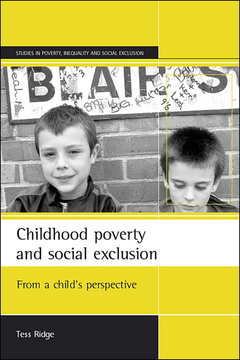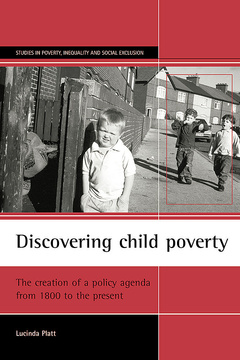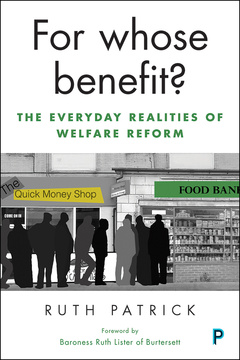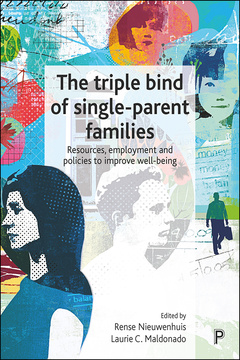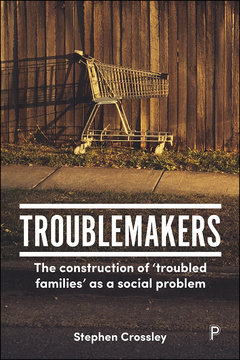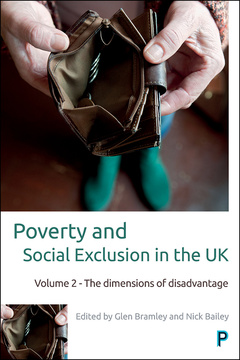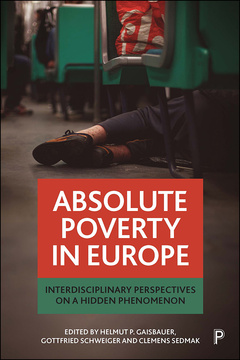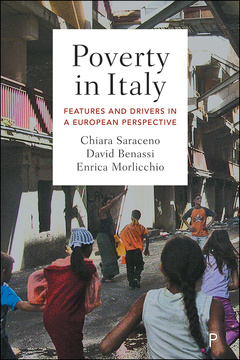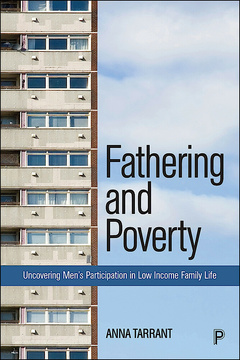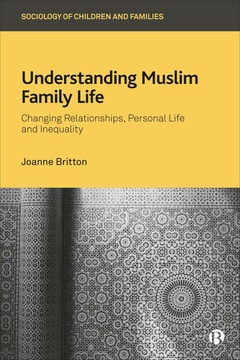Published
Feb 25, 2015Page count
240 pagesBrowse the series
Studies in Poverty, Inequality and Social ExclusionISBN
978-1447318835Dimensions
234 x 156 mmImprint
Policy PressPublished
Feb 25, 2015Page count
240 pagesBrowse the series
Studies in Poverty, Inequality and Social ExclusionISBN
978-1447318828Dimensions
234 x 156 mmImprint
Policy PressPublished
Feb 25, 2015Page count
240 pagesBrowse the series
Studies in Poverty, Inequality and Social ExclusionISBN
978-1447318866Imprint
Policy PressPublished
Feb 25, 2015Page count
240 pagesBrowse the series
Studies in Poverty, Inequality and Social ExclusionISBN
978-1447318873Imprint
Policy PressThe recent radical cutbacks of the welfare state in the UK have meant that poverty and income management continue to be of great importance for intellectual, public and policy discourse. Written by leading authors in the field, the central interest of this innovative book is the role and significance of family in a context of poverty and low-income. Based on a micro-level study carried out in 2011 and 2012 with 51 families in Northern Ireland, it offers new empirical evidence and a theorisation of the relationship between family life and poverty. Different chapters explore parenting, the management of money, family support and local engagement. By revealing the ordinary and extraordinary practices involved in constructing and managing family and relationships in circumstances of low incomes, the book will appeal to a wide readership, including policy makers.
"a strong statement about the struggles of families trying to make a decent life with little income...an important perspective" European Journal of Social Work
"As well as becoming a social policy classic, this book should also be compulsory reading for politicians and policymakers." Social Policy & Administration
"This theoretical framework is welcome because it anchors the book and differentiates it from many of the recent texts on austerity." Jon Warren, Disability and Society
"A most original reflection on the impact of poverty and austerity on families - theoretically driven and empirically grounded. Wonderful work." Professor Jonathan Bradshaw, University of York
''A solid contribution to the international scholarship on families in poverty [that continues] important conversations about how low-income families cope as social services are slashed and restructured'' Journal of Children and Poverty
"This is both a compelling empirical account of how families live with poverty and a thoughtful theoretical analysis of the relationship between family and poverty." Professor Jane Millar, University of Bath
"Its emphasis upon relationships and human interaction gives policy makers richer evidence...around concepts of social, material and economic wellbeing." Journal of Social Policy
"This work provides a rare and nuanced insight into the several levels at which the 'sense' of family may enable families on low incomes to survive or 'get by'." Professor Hartley Dean, London School of Economics
"This rich study offers important insights into the role of family in the hard work of managing poverty in both private and public spheres" Baroness Ruth Lister, Loughborough University
Mary Daly is Professor of Sociology and Social Policy at the Department of Social Policy and Intervention at the University of Oxford. Among the fields in which she has published widely are parenting, poverty, care, gender, family and labour market policies.
Grace Kelly has been a researcher at Queen’s University Belfast since 1999. Her main interests and expertise relate to issues of social need and poverty.
Introduction;
Introducing the respondents;
Family life through an economic lens;
The construction, possibilities and limits of family in conditions of poverty and low income;
Parents and their children;
Wider family relationships and support;
Social networks and local engagement;
Representing self and family;
The policy context and implications of the findings;
Conclusion.







